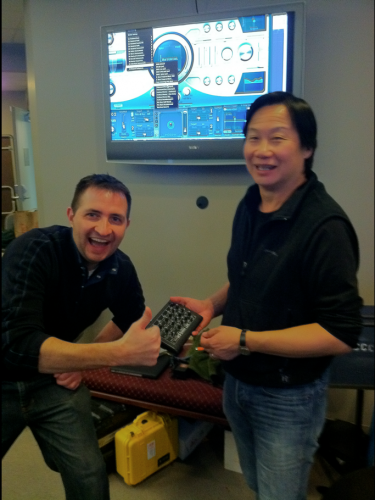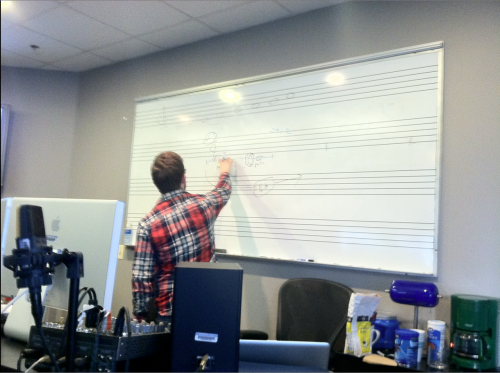Flip Flops in the Windy City: Spring Curriculum
The last Chicago semester of the film scoring program is a busy and exciting one. Want to know more about the curriculum this semester? Good.
Scoring IV
The fourth and final composition class is taught by Gary Chang. Here we continue where we left off in Scoring III (Genre Study). This time around, we deal with higher-stakes genres like action and thriller. So far this semester, we have covered different ways to keep an action cue fresh and interesting sounding. This is an important skill in order to A) produce a great product, and B) work very fast. And since we want to be able to do both, this is important!
Game Scoring
Game scoring is taught by IAM chair Joe Cancellaro. An experienced film & game scorer (as well as 3D graphic artist), Joe has a lot to teach us about game scoring. Why do we have an entire semester of classes dedicated to just game scoring? Because game music is a completely different mechanism than film or television music. Film & television are linear. Interactive gaming by definition is non-linear. For example, you could play a game and have your character walk around a room for an indefinite period of time. At any point, your character might leave the room, and the music changes. But how do you make sure A) the music stays fresh for an indefinite period of time, and B) transitions naturally at any point? This is what we are going to learn this semester.
Just as it is important to understand everything that goes into making a film in order to approach it from a musical perspective, it is vital to understand the functionality of the game engines governing the interactive media we score. In this case, the name of the game is UDK. Joe has us making very simple levels in order to understand the basics of how the sound cues will interact with the level itself. It is very enlightening and challenging at times, since most of us are Mac users and these programs are on the PC. Oh well. Luckily, I don’t have to buy a PC just to work with UDK. I have the option of dual-booting Windows from my Mac (perfectly safe, our tech prof showed us how). But I choose to take advantage of the IAM department’s awesome tech lab:
This lab has more than 2 dozen computers, all with the software we need. But more importantly, the lab is staffed with people who are there to HELP us use these programs! It is an invaluable resource provided by the school, and I am extremely grateful for it.
Conducting to Picture
We are taking a conducting class this semester with Chicago Youth Symphony Orchestra conductor Allen Tinkman. After just one class, I am impressed with his level of proficiency and lack of ego–usually the two go hand-in-hand with accomplished conductors. We’ve started out with the basics: sight-singing on fixed-do and simple beat mapping & cueing. This class will prove extremely valuable when it comes time to work with our studio orchestra during the Summer Semester in Los Angeles.
Lab IV
Just like the other three, our final semester of lab class is taught by technology professor Chris Beckstrom. We aim to focus this semester on the finer points of working with a digital/audio workstation.
So far this semester, we’ve covered how to work with Logic’s Sculpture and ES2. We’ve also done a significant amount of work using Flex Time. This proves very handy for moving parts of audio around in a post-recording setting. I used it today on the music for a trailer!
Independent Study/Thesis
We have independent studies this semester, with pretty much any professor we want. I decided to do a sort of mashup and am meeting with all my professors (individually) depending on what the nature of the outside project is. It is awesome to get one-on-one time from people that are this good at what we do.
We are currently in the process of selecting films for our thesis projects…





